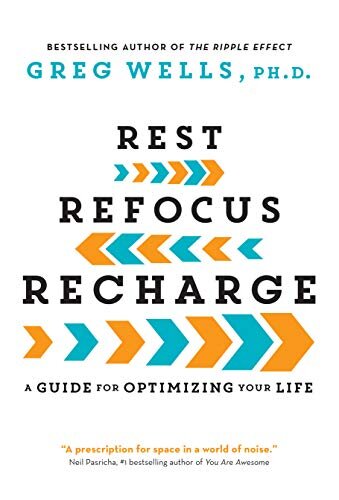How long do emotions really last?
It's August already? How has your mind, body, and soul been the last few months? I hope well but if not, experiencing ups and downs is a normal part of the human experience <3
I believe you will get through what you are going through.
Topic of the month: Emotions
In June, I talked about the fight or flight response - if you missed this you can check out my thoughts here.
Things that can trigger the fight or flight response include our emotions. According to Harvard educated neuroscientist, Dr. Jill Bolte Taylor, the lifespan of an emotion only last 90 seconds.
When we experience a strong emotion, a cascade of chemical events unfold, such as the a spike of adrenaline or the release of cortisol. Because your body is always trying to maintain a state of balance, these chemicals get flushed out of your body in about 90 seconds.
But wait a second - I can hear you saying "That's not possible, I've definitely had feelings last way longer than 90 seconds."
Well that's because your thinking mind has come into play. When you are emotionally aroused, your mind may begin to catastrophize:
"Omg this feeling is going to last forever."
"I will never get through this."
"Everything is falling apart"
OR you create stories about where the emotion came from
"Ugh I feel blah, my own friends probably think I'm annoying."
"I'm so nervous, I'm going to do such a bad job tomorrow."
When your mind feeds into the emotion be creating these types of thoughts, the thoughts re-trigger the chemical process of emotional arousal.
This is why emotions may feel like they last forever but in reality, they don't last very long. Your thoughts continue to trigger the emotion's life span.
Here are 2 examples:
Feels sad --> Thinks "Ugh I feel blah, my own friends probably think I'm annoying" --> Feels more sad about being judged by friends
Feels nervous --> Thinks "I'm so nervous, I'm going to do such a bad job tomorrow." --> Feels more anxious about presentation tomorrow
To stop yourself from re-triggering your emotions there are a few things you can do:
When you are emotionally aroused your perception of time can get skewed and feel like it's going by really slow (or fast). Remember that emotions do not last forever.
Step away from your thoughts. Remember that thoughts are not always real. Create some distance between you and your thoughts by imagining them floating away on a cloud. You have thoughts and you have a choice to leave them alone and not engage with them. You can also try a guided meditation if you need.
Research shows that labeling your emotions can reduce activity in the part of the brain where emotions live (the amygdala). So label your emotions by saying "I am noticing that I am feeling _____."
Try relaxation techniques like deep breathing, where you inhale through your nose for a count of 4 and exhale through your mouth for a count of 6+. You can also try progressive muscle relaxation where you tense specific muscle groups and then let go of the muscle groups. Your muscles will be in a more relaxed state after you tense them.
Do an activity to distract yourself from thinking.
doodledwellness update
Last month, I started to notice signs that I was burning out so I took a step back from social media and also didn't create a July newsletter. In North America, we are plagued with hustle culture and sold this idea that we have to be productive 24/7 and if we are not, we should feel guilty. I've been challenging this concept for the last year and decided to take a step back and rest guilt free. It was a much needed rest and it reminds me that rest is still productive. I am inviting you to challenge hustle culture as well. You deserve rest.
Book of the month
Speaking of rest, during my time off I read this book by Dr. Greg Wells. It is an easy-to-read educational book and guide about the importance of resting so that we can optimize our lives. The book presents some really cool research and talks about how different activities activate different brain states. My take-away from this book?
Slow down to speed up.
Podcast of the month
Monthly Journal Prompt
For this month's journal entry, think of a time when you noticed a strong emotion and answer these journal prompts:
Last time I noticed a shift in my emotions, I was thinking about .....
This led me to .....
What I learned from this experience was .....
Something I would have liked to do differently is .......
If you find journalling hard - that's normal. Write freely without caring about the way it reads because after all, it's your own private words for you and you only.
Journaling can also provide you with many interesting insights about yourself, which is helpful because awareness is the first step towards healing.



